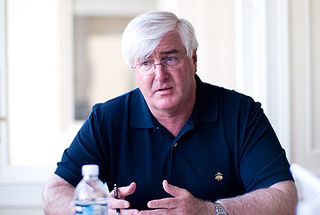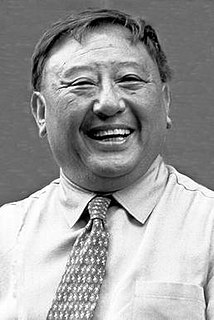A Quote by Nick Flynn
Memoir is actually the most egoless genre, even though it might seem ostensibly so much ego-driven. In order for it to succeed, you have to dissolve the self into these larger universal truths, and explore these deeper mysteries. If it’s purely autobiographical and ego-driven, it’s going to fail.
Related Quotes
As Hubert Benoit said, it is not the identification with the ego that is the problem, but the exclusive nature of the identification. When our self-identity expands beyond the ego, into the deeper psychic, then even into the Unborn and One Taste, the ego is simply taken up and subsumed in a grander identity. But the ego itself remains as the functional self in the gross realm, and it might even appropriately be intensified and made more powerful, simply because it is now plugged into the entire Kosmos.
"Transcending the ego" thus actually means to transcend but include the ego in a deeper and higher embrace, first in the soul or deeper psychic, then with the Witness or primordial Self, then with each previous stage taken up, enfolded, included, and embraced in the radiance of One Taste. And that means we do not "get rid" of the small ego, but rahter, we inhabit it fully, live it with verve, use it as the necessary vehicle through which higher truths are communicated. Soul and Spirit include body, emotions, and mind; they do not erase them.
Misery makes you special. Misery makes you more egoistic. A miserable man can have a more concentrated ego than a happy man. A happy man really cannot have the ego, because a person becomes happy only when there is no ego. The more egoless, the more happy; the more happy, the more egoless. You dissolve into happiness. You cannot exist together with happiness; you exist only when there is misery. In happiness there is dissolution.
In Buddhist ideology, the conventional self is that which is constructed in a way by the use of the pronoun, and when you realize there is no absolute ego there, no disconnected one, self, or ego, then that actually strengthens your conventional ego. It does so in the sense that then you realize it's a construction, and you can strengthen it in order to help others, or do whatever you're trying to do, it's not like you no longer know who you are. Then you can organize your behavior by using your ego, as it's now the pronoun.
But in the West it is very easy to dissolve the ego. So whenever a Western seeker reaches an understanding that ego is the problem he can easily dissolve it, more easily than any Eastern seeker. This is the paradox - in the West ego is taught, in the East egolessness is taught. But in the West it is easy to dissolve the ego, in the East it is very difficult.
Then ego goes on growing, because the society needs you as an ego, not as a Self. The Self is irrelevant for the society; your periphery is meaningful. And there are many problems. The ego can be taught and the ego can be made docile and the ego can be forced to be obedient. The ego can be made to adjust, but not the Self. The Self cannot be taught, the Self cannot be forced. The Self is intrinsically rebellious, individual. It cannot be made a part of society.
The term "self" seems a suitable one for the unconscious substrate whose actual exponent in consciousness is the ego. The ego stands to the self as the moved to the mover, or as object to subject, because the determining factors that radiate outward from the self surround the ego on all sides and are therefore supraordinate to it. The self, like the unconscious, as an a priori existent out of which the ego evolves. It is, so to speak, an unconscious prefiguration of the ego. It is not I who create myself; rather, I happen to myself.
The more successful you become, the more the demands of your ego will increase. In the beginning, you simply want to succeed, but your ego will not be satisfied. When you become a little more successful your ego wants to kill your competition. And when you become even more successful, it wants to make you the universal king. There's no telling what ego wants because our desire doesn't have any limit; therefore, its demands continually increase.
































